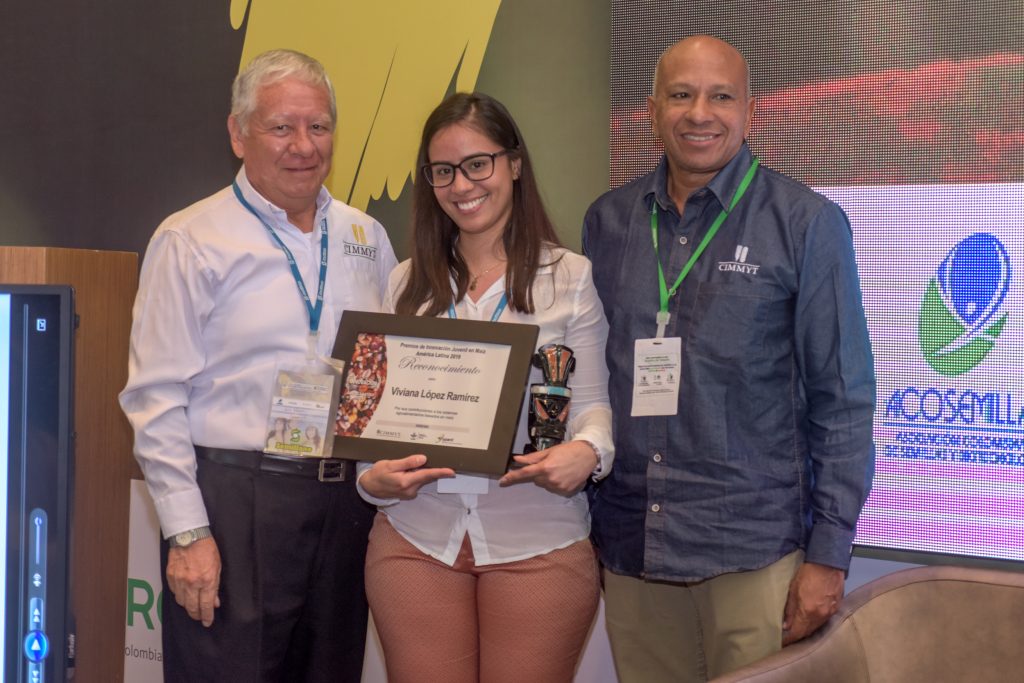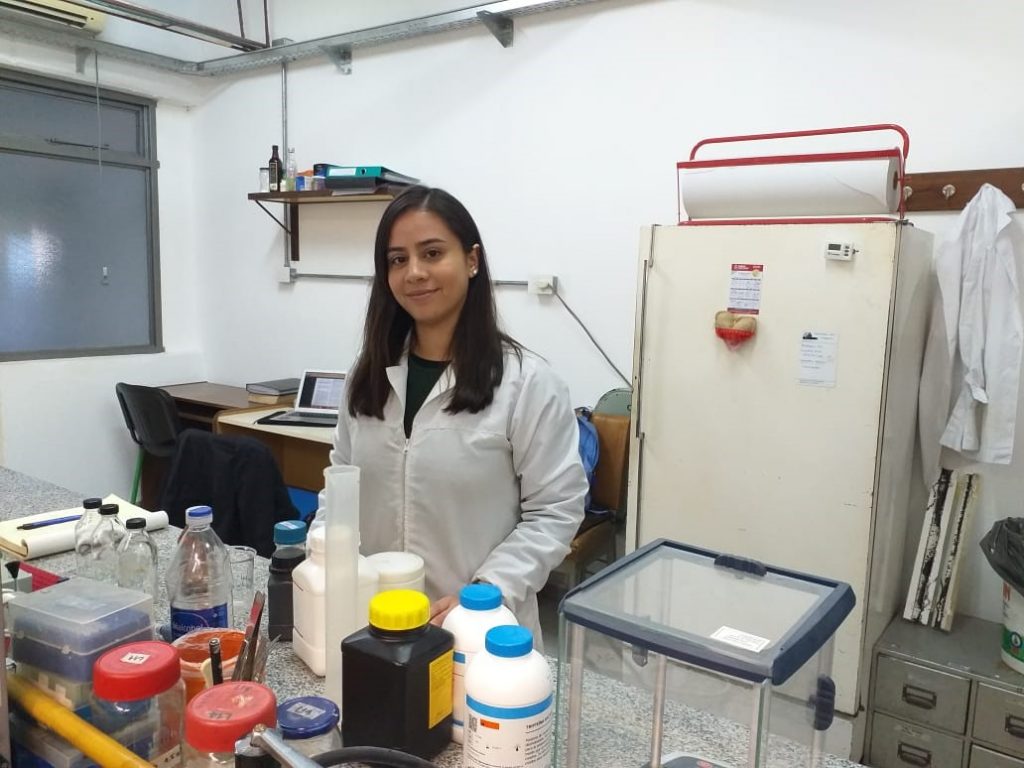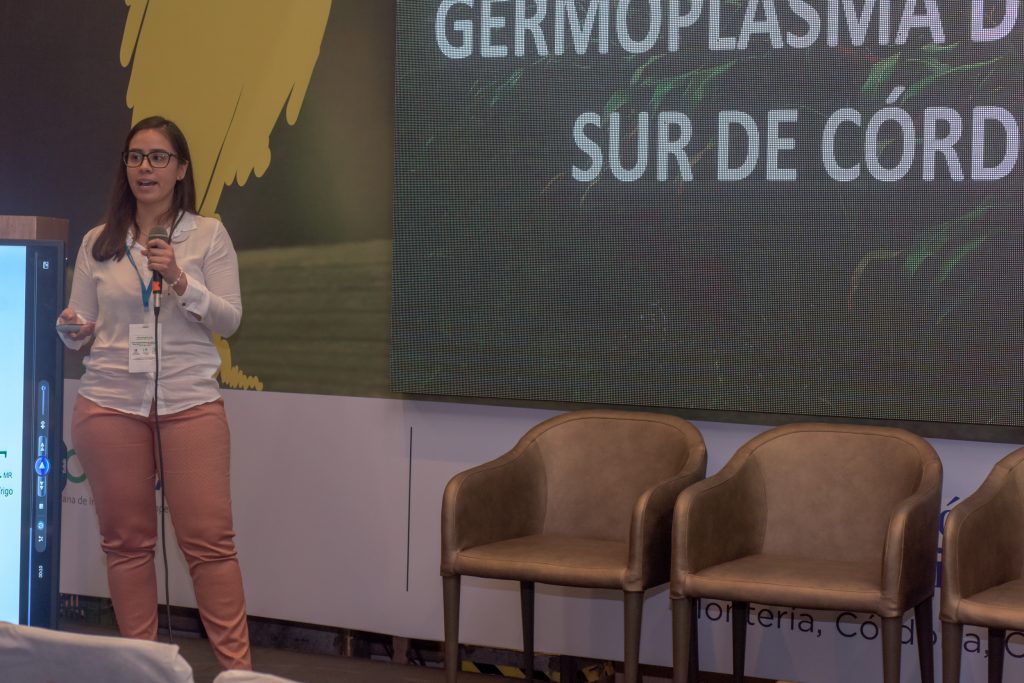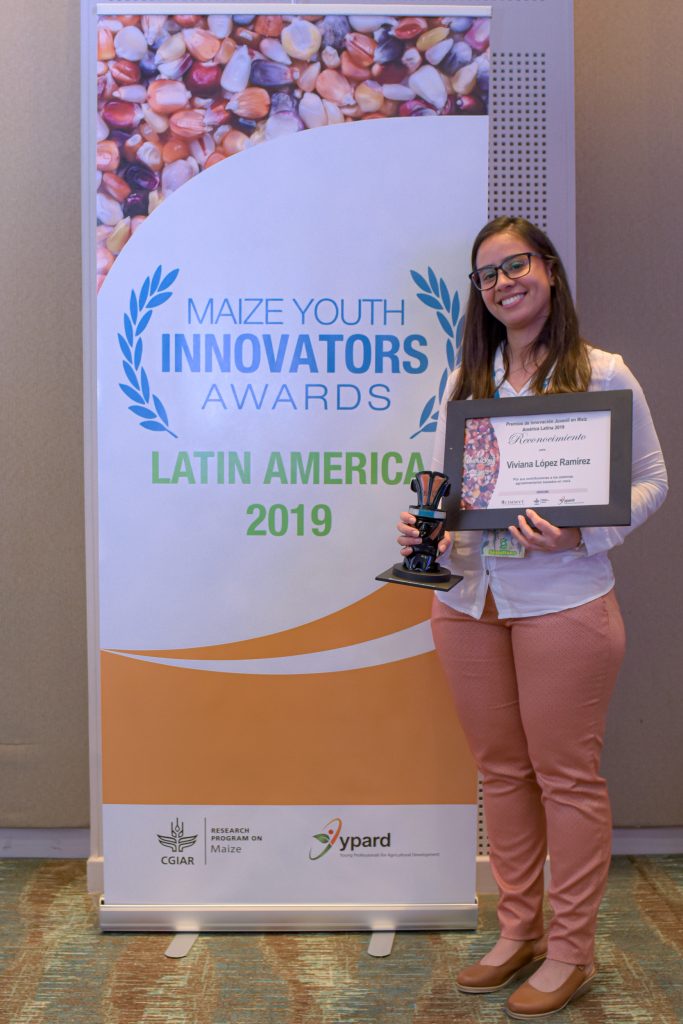Young Innovator Viviana López Ramírez studies bacterial maize diseases to help farmers
By Jennifer Johnson
Viviana López Ramírez uses her passion for biology to tackle agricultural challenges in her adopted country, Argentina. Originally from Medellin, Colombia, she forms part of a multidisciplinary team at the Institute of Agro-biotechnical Research (INIAB) at the National University of Río Cuarto, Argentina working to isolate and identify pathogenic microorganisms in maize in order to identify resistant lines for farmers. Viviana was recently awarded the MAIZE Youth Innovators Award 2019 – Latin America in the category of Researcher for her involvement in this work.
The awards, an initiative of the CGIAR Research Program on Maize (MAIZE), seek to recognize the contributions of young women and men who are implementing innovations in Latin American maize-based agri-food systems. This is the third instalment of the awards, following Asia in October 2018 and Africa in May 2019. The awards ceremony took place at the 23rd Latin American Maize Reunion in Monteria, Colombia on October 9, 2019.

Q.) Tell us about your innovation
A.) The pathogenic microorganisms, or bacteria, that we work with cause diseases in maize. The scientific world knows a lot about fungal and viral maize diseases, but not about diseases caused by bacteria. Through our work, we have been able to find bacteria that have never been mentioned in scientific literature before as being pathogenic. We isolate them from the leaf, conduct molecular identification, and do a re-inoculation trial to ensure that it is the bacteria that is causing the maize disease.
As we don’t know much about bacteriosis, most of what we do know comes from reports from farmers—that there are spots on the leaves, or the leaves are drying up and they are losing much of their crop. Reports of bacteriosis/bacterial infections in maize have been greatly increasing recently, especially in the pampas region of Argentina where I work. People don’t know how to control it because they don’t know what it is.
With this innovation of isolating and identifying these bacteria, we are able to generate knowledge about these new pathogenic microorganisms and in turn discover what methods can be used to keep them in check and find alternatives to control them.

Q.) What inspired you to do this?
A.) While I am not from Argentina, it feels like a second home to me, and I have always been attracted to agronomy because it has a direct application on people’s lives. Maize is a very important crop both in my native Colombia and in Argentina, and in doing this work I feel that I am going back to my roots.
Q.) What are your hopes for the future of this innovation?
A.) The next steps are to identify maize lines with resistance to bacteriosis so that farmers will not lose so much of their harvests. We want farmers to be able to achieve better maize yields, of higher quality. In addition, we will also work to use bacteriocins to fight certain types of pathogenic bacteria.

Q.) How does it feel to be a winner of the MAIZE Youth Innovators Awards?
A.) I feel so honored and happy to be named a MAIZE Youth Innovator, but at the same time a great deal of responsibility. I hope that my contributions to research will be useful to others in the near future.
Q.) What advice do you have for other young people that are interested in Agriculture?
A.) Look around you and identify problems in your own region and community, and once you have found them, try to solve them. I also advise you to be very curious—ask questions, investigate. In this day and age we have so many resources available for us to use. Lastly, don’t be embarrassed to ask questions or to get things wrong—it’s all part of the learning process, and will help you to learn even more.

2019 MAIZE Youth Innovators Awards Latin America, Argentina, Colombia, Maize, MYIA 2019, MYIA 2019 Latin America
